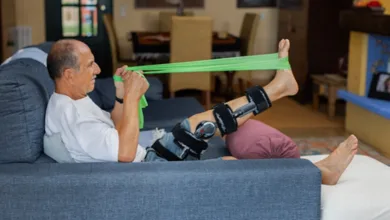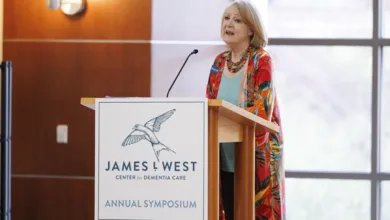Role of Family Caregivers: Hidden heroes

If you’re a caregiver, you know this all too well. You wake up early to get your elderly mother ready for a doctor’s visit, informing work you’ll be late for the third time this month. You’re rushing to gather everything — insurance cards, medication details, and questions for the doctor. Your mom, dealing with memory loss, relies on you more than ever.
After a hectic morning, you spend hours on the phone with insurance companies, only to find that the new medication likely isn’t covered. Frustration sets in as you realize the meeting you promised to a work client is becoming unrealistic.
You can’t stop thinking about follow-up appointments and the uncertain approvals for new tests on your drive to work. You’re overwhelmed, unsure where to start.
An hour into your workday, a doctor’s office calls back, telling you your mom needs a referral from her primary care doctor — the same office she visited this morning — another phone call.
By noon, you haven’t had a moment to yourself. By evening, exhaustion leads to ordering takeout instead of your planned walk or healthy dinner.
Sorting through prescriptions and records, the constant calls wear you down, turning frustration into resentment. You don’t want to feel this way, but you do. You wonder how much longer you can keep up this relentless pace.
This is the reality for millions who, without even realizing it, sacrifice their well-being to care for the ones they love.
You may not call yourself a caregiver, but you are the “hidden role” behind your family member’s health and well-being.
What is a modern-day caregiver?
Let’s be honest: The term “caregiver” might not resonate with you.
In today’s fast-paced world, caregiving goes beyond physical help—it’s about navigating a maze of appointments, insurance calls, and emotional support while balancing your own life. The modern family caregiver isn’t defined by a title but by our daily roles, ensuring our loved ones get the care they need, often at the expense of our own needs.
With longer life expectancies and increasing health issues, caregiving responsibilities have grown, and many people take on more than they realize.

You may not consider yourself a caregiver, but consider your hidden role.
Even if you don’t label yourself as a caregiver, if you’re handling doctor’s visits, insurance calls, or housing placement, you’re doing much more than just “helping out” your family member.
Here are some of the roles you might not even realize you’re playing:
- The appointments coordinator: Managing doctor visits and juggling multiple calendars.
- The insurance negotiator: Spending hours on the phone to sort out approvals and coverage details.
- The medication manager: Tracking prescriptions, renewals, and ensuring your loved one stays on top of their medications.
- The emotional supporter: Here’s the big one—being a steady presence in medical crises, offering comfort and reassurance.
- The information hub: Gathering and managing medical records and health information from various sources.
Each of these roles may seem small, but together, they create a web of responsibility that defines your day — and often, your life.
Caring for a loved one’s health needs
As Rosalynn Carter famously said, “There are only four kinds of people in the world: those who have been caregivers, those who are currently caregivers, those who will be caregivers, and those who will need caregivers.”
This powerful statement underscores that caregiving touches us all in one way or another.
Consider the statistics:
- In the U.S., there are 53 million family caregivers.
- Nearly 1 in 5 U.S. adults juggle caregiving duties for a loved one.
- More than 90% of caregivers don’t call themselves “caregivers”—they see it as simply being there for someone.
- The average caregiver dedicates 24 hours a week to these responsibilities, which are like a part-time job with no pay or training.
- According to AARP, approximately 23% of caregivers experience high levels of stress while navigating a healthcare system that often feels overwhelmingly complex.
These numbers aren’t just figures; they mirror the daily challenges many face in keeping their loved ones healthy.
The personal toll: struggles and strains
Carrying this hidden role isn’t without its challenges. The constant cycle of managing appointments, advocating for your loved one, and juggling personal and professional commitments can lead to significant stress and burnout.
Over time, the unending demands can even strain the relationship with the family member you’re caring for. That mix of guilt, exhaustion, and frustration isn’t a sign of failure—it’s a sign that you’re stretched too thin and need support.

Where to start? Build your team
Recognizing that you are not alone is the first step. If you feel overwhelmed, it might be time to establish a support system to help share the burden with you.
That’s where having a healthcare advocate can make all the difference.
Managing appointments, handling insurance calls, juggling medications and paperwork — it’s a full-time job layered on top of everything else you already do. And while you’ve managed it all for years, you don’t have to anymore.
Professionals who understand your day-to-day can help lighten the load, giving you time to breathe, regroup, and show up fully—for your loved ones and yourself.





